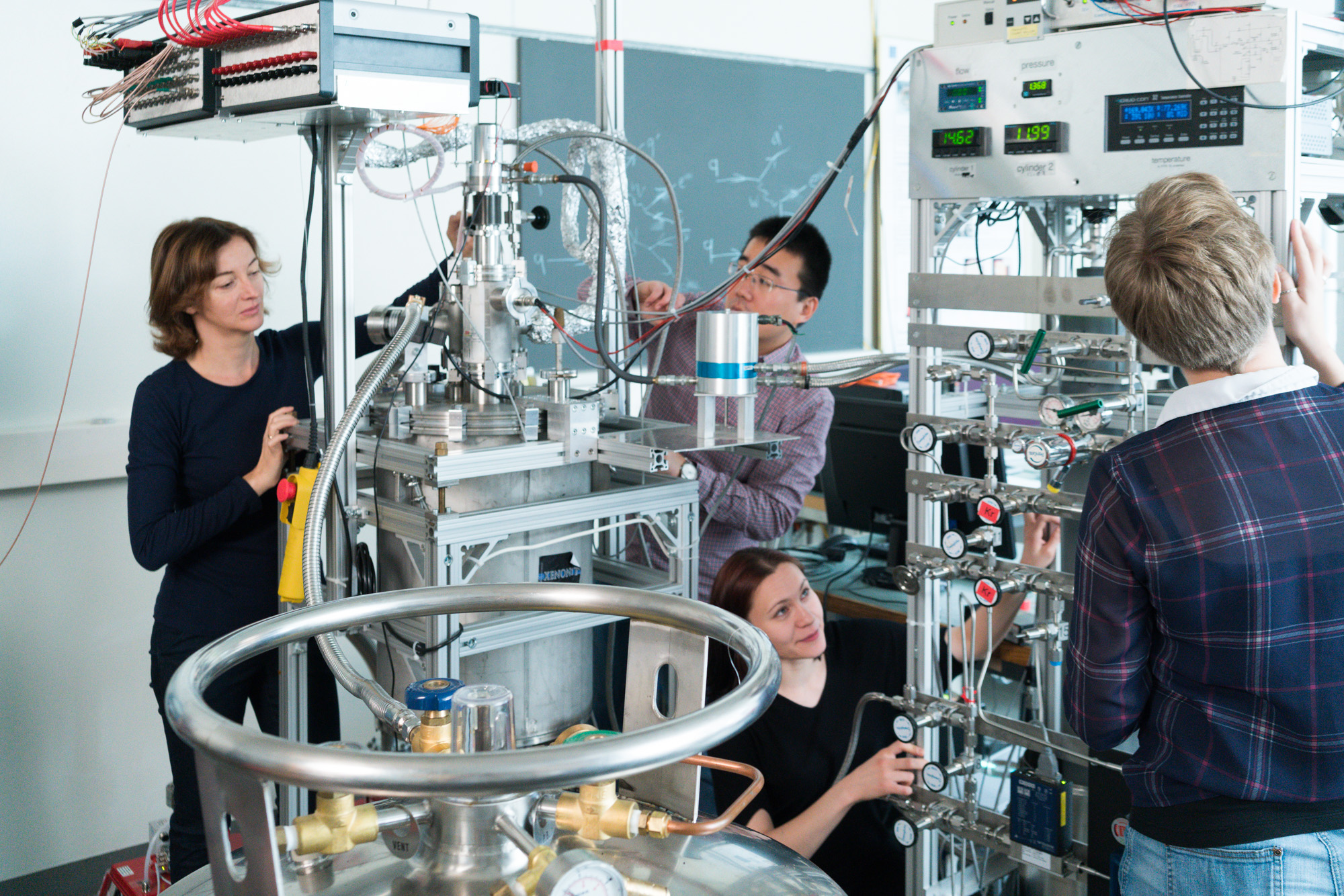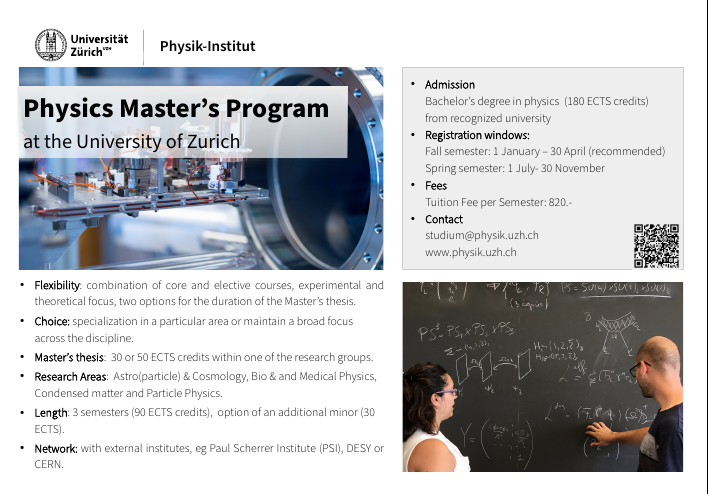Master's Degree Programme
Table of contents

With its range of compulsory, elective and compulsory elective subjects and the flexibility in the length of the Master's thesis, the Master's degree programme in Physics at UZH offers students the opportunity to deepen their knowledge in one subject area or to continue their broad education.
The Master's degree in Physics requires 90 ECTS. A minor subject of 30 ECTS can be chosen on a voluntary basis. The programme language is English.
The programme includes special lectures from all relevant research areas in physics at UZH (condensed matter, particle physics, astro (particle) physics, bio- & medical physics). The six- or ten-month Master's thesis is based on a current research project in one of the theoretical or experimental research groups or in an external research group.
The annual reports and the websites of the individual research groups give an overview of the current research work. The research groups at our institute organize an information event at regular intervals at which possible topics for Bachelor's and Master's theses are presented.
Flyer
Learning Agreement
At the beginning of the Master's programme, students discuss their individual curriculum with the director of the study programme (Christof Aegerter), which is then written down in a learning agreement on studentadmin.mnf.uzh.ch.
Before beginning the Master's thesis, this learning agreement is finalised with the director of the study programme and/or the supervisor of the Master's thesis. Subsequent changes to the agreement require the agreement of the director of the study programme.
Compulsory Modules
Compulsary modules are the master thesis (30 or 50 ECTS) and the research seminar.
Master 's thesis
The Master's thesis forms a central part of the Master's degree program, especially if the longer version of 50 ECTS is chosen. The Master's thesis consists of an independent research project within one of the physics research groups at our university or, by arrangement, in an external research group (topics for Master's theses).
Research Seminar
A total of 20 seminar talks must be attended from all the research seminars offered and the joint colloquium with ETH. Participation must be confirmed by the organizer of the seminar or the lecturer (form (PDF, 37 KB)).
Grade
The Master's grade is calculated from the credit-weighted average of all graded modules of the Master's degree program.
Regulations
Here you can find all the regulations for studying at the Faculty of Mathematics and Natural Sciences at UZH.
Study guide
The Guide to Physics Master Studies (PDF, 281 KB) provides comprehensive information about the Master's programs.
